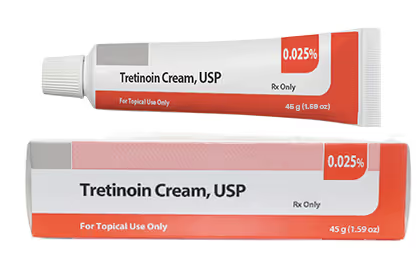Are you considering taking spironolactone but worried about the potential side effects? Look no further – this comprehensive guide will provide you with all the information you need to navigate the side effects of spironolactone.
Spironolactone is a medication commonly used to treat conditions such as high blood pressure and hormonal acne. However, like any medication, it can come with its fair share of side effects. It’s essential to be informed about these potential side effects, understand their likelihood, and know how to manage them effectively.
In this guide, we will delve into the most common side effects of spironolactone, discussing everything from dizziness and low blood pressure to potassium imbalances and hormonal fluctuations. We’ll also provide you with tips and strategies for minimizing and coping with these side effects, ensuring that you can make the most informed decisions about your health.
Whether you’re currently taking spironolactone or considering it as a treatment option, this guide will equip you with the knowledge and resources to navigate any potential side effects. Don’t let the fear of side effects hold you back – empower yourself with information and take control of your health journey today.
Related: Can Dry Skin Cause Acne?
Common side effects of spironolactone
Spironolactone is generally well-tolerated, but some individuals may experience common side effects. These side effects are usually mild and temporary, resolving on their own over time. However, it’s important to be aware of them to determine if they are manageable or require medical attention.
1. Dizziness and lightheadedness: One of the most commonly reported side effects of spironolactone is dizziness or lightheadedness. This can occur due to a drop in blood pressure, especially when standing up quickly. If you experience this side effect, try getting up slowly from a sitting or lying position to minimize the dizziness. It may also help to increase your fluid and salt intake to maintain adequate blood pressure.
2. Increased urination: Spironolactone is a diuretic, meaning it increases urine production. This can lead to more frequent urination, especially in the first few weeks of starting the medication. Ensure you stay well-hydrated to compensate for the increased fluid loss. If the increased urination becomes bothersome or disrupts your daily activities, consult your healthcare provider.
3. Breast tenderness and enlargement: Spironolactone can affect hormone levels, leading to breast tenderness and enlargement in some individuals. This side effect is more common in women but can also occur in men. Generally, it’s not recommended for men to take spironolactone. If you experience breast discomfort, wearing a supportive bra and applying warm compresses can help alleviate the symptoms. If the breast enlargement becomes significant or causes distress, consult your healthcare provider for further evaluation.
Want to navigate Spironolactone side effects with confidence? Dive into our comprehensive guide and ensure your safety today!
Managing and reducing common side effects

While some side effects of spironolactone may be unavoidable, there are strategies you can employ to manage and reduce their impact on your daily life. Here are a few tips:
1. Stay hydrated: Increasing your fluid intake can help counteract the diuretic effect of spironolactone and prevent dehydration. Aim to drink at least eight glasses of water per day, and consider incorporating hydrating foods like fruits and vegetables into your diet.
2. Monitor your blood pressure: If you experience dizziness or lightheadedness, it’s essential to monitor your blood pressure regularly. Invest in a home blood pressure monitor and consult your healthcare provider if your blood pressure drops significantly or if you experience symptoms that persist or worsen.
3. Adjust your dosage: If the side effects of spironolactone become intolerable, your healthcare provider may consider adjusting your dosage. They will evaluate the benefits versus the side effects and make the necessary changes to optimize your treatment plan.
Rare side effects of spironolactone
While rare, some individuals may experience more severe side effects when taking spironolactone. These side effects require immediate medical attention. If you experience any of the following symptoms, seek medical assistance promptly:
1. Severe allergic reactions: Spironolactone can rarely cause severe allergic reactions, such as difficulty breathing, swelling of the face, lips, tongue, or throat, and hives. If you develop any of these symptoms, call emergency services or visit the nearest emergency room immediately.
2. Hyperkalemia: Spironolactone can increase potassium levels in the blood, leading to a condition called hyperkalemia. Symptoms of hyperkalemia include muscle weakness, fatigue, irregular heart rhythms, and numbness or tingling sensations. If you experience any of these symptoms, contact your healthcare provider immediately.
3. Menstrual irregularities: Spironolactone can affect hormonal balance, leading to menstrual irregularities in women. This can include changes in the frequency, duration, or intensity of periods. If you experience significant changes in your menstrual cycle or have concerns about your reproductive health, consult your healthcare provider for further evaluation.
When to seek medical attention

While most side effects of spironolactone are manageable and resolve on their own, there are instances where medical attention is necessary. Contact your healthcare provider if you experience any of the following:
1. Persistent or worsening side effects: If you experience side effects that persist or worsen over time, it’s important to consult your healthcare provider. They can evaluate the severity of the side effects and determine the best course of action.
2. Severe or life-threatening symptoms: If you develop severe or life-threatening symptoms, such as chest pain, difficulty breathing, or anaphylaxis, seek immediate medical attention by calling emergency services or visiting the nearest emergency room.
3. Concerns about medication interactions: If you are taking other medications or supplements alongside spironolactone and have concerns about potential interactions, consult your healthcare provider or pharmacist. They can provide guidance on medication management and ensure your overall treatment plan is safe and effective.
Master the effects of Spironolactone. Check out our in-depth guide and be ahead of the curve!
Interactions with other medications
Spironolactone can interact with certain medications, potentially affecting their efficacy or increasing the risk of side effects. It’s crucial to inform your healthcare provider about all the medications, supplements, and herbal products you are taking to avoid any potential interactions. Some common medications that may interact with spironolactone include:
1. ACE inhibitors and angiotensin receptor blockers (ARBs): These medications are commonly used to treat high blood pressure and heart failure. When combined with spironolactone, they can increase the risk of hyperkalemia. Regular monitoring of potassium levels is essential when taking these medications together.
2. Nonsteroidal anti-inflammatory drugs (NSAIDs): NSAIDs, such as ibuprofen and naproxen, can reduce the effectiveness of spironolactone in lowering blood pressure. If you require pain relief, consult your healthcare provider for alternative options that do not interact with spironolactone.
3. Potassium supplements and potassium-sparing diuretics: Spironolactone itself is a potassium-sparing diuretic, meaning it helps retain potassium in the body. Taking additional potassium supplements or other potassium-sparing diuretics alongside spironolactone can lead to dangerously high potassium levels.
Tips for taking spironolactone
To maximize the benefits of spironolactone and minimize the risk of side effects, consider the following tips:
1. Take as prescribed: Follow your healthcare provider’s instructions on dosage and timing. Taking spironolactone consistently and as prescribed ensures the medication remains effective in managing your condition.
2. Combine with lifestyle changes: Spironolactone is often used in conjunction with lifestyle modifications to manage conditions like acne. Incorporate healthy habits such as regular exercise, a balanced diet, and stress reduction techniques to complement the effects of the medication.
3. Submit regular check-ins: Regular check-ins with your healthcare provider are essential to monitor your progress, assess the effectiveness of spironolactone, and detect any potential side effects or complications early on.
Related: How To Get Rid Of Body Acne
Alternative treatments for the conditions spironolactone is prescribed for
Spironolactone is a commonly prescribed medication for conditions such as high blood pressure and hormonal acne. However, if you are unable to tolerate spironolactone or prefer alternative treatment options, there are alternatives available. It’s crucial to discuss these options with your healthcare provider to determine the most suitable treatment approach for your specific needs.
If spironolactone is not an option for managing hormonal acne, other treatments may be considered. These include topical retinoids, oral contraceptives, antibiotics, and isotretinoin. Your dermatologist will assess the severity of your acne and recommend the most suitable treatment approach.
Related: When Do You Need To See A Dermatologist?
Frequently asked questions about spironolactone
1. Can spironolactone cause weight gain? Weight gain is not a common side effect of spironolactone. In fact, it may cause slight weight loss due to its diuretic effect. If you notice any significant changes in your weight while taking spironolactone, consult your healthcare provider for further evaluation.
2. Does spironolactone affect birth control effectiveness? Spironolactone does not affect the effectiveness of hormonal birth control methods, such as oral contraceptives or intrauterine devices (IUDs). However, it’s always important to discuss any potential interactions with your healthcare provider. Spironolactone can have toxic effects on a fetus so remember to not take this medication if you are trying to get pregnant or if you are pregnant.
3. How long does it take for spironolactone to work for acne? The effects of spironolactone on acne can vary. Some individuals may notice an improvement in their acne within a few weeks, while others may require several months (yes months) of treatment before seeing results. It’s important to be patient and consistent with the medication while giving it enough time to work.
Conclusion
Navigating the side effects of spironolactone can be overwhelming, but armed with information and strategies, you can make informed decisions about your health. Be aware of the common side effects, manage them proactively, and seek medical attention if necessary. Discuss potential interactions with other medications and explore alternative treatment options if spironolactone is not suitable for you. Remember to attend regular check-ups and communicate openly with your healthcare provider throughout your treatment journey. Don’t let the fear of side effects hold you back – take control of your health and embrace your journey towards well-being.























